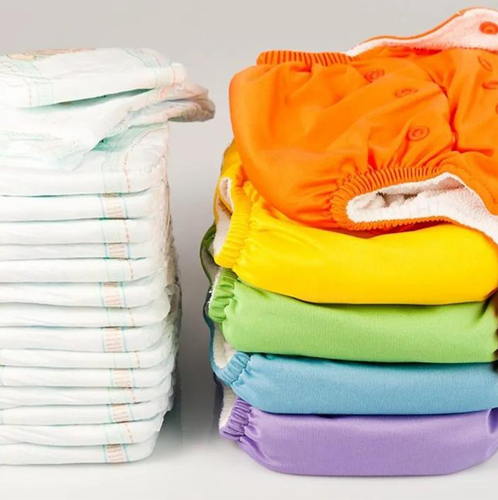
Choosing between cloth and disposable diapers is a significant decision for many parents, as it impacts not only their baby’s comfort and health but also their lifestyle, finances, and environmental footprint. Both types of diapers have their advantages and disadvantages. Understanding these can help you make an informed choice that suits your family’s needs.
Cloth Diapers: Advantages and Disadvantages
Advantages:
Cost-Effectiveness: While the initial investment in cloth diapers can be higher, they are reusable, leading to long-term savings. Over time, cloth diapers can be significantly cheaper than disposables, especially if used for multiple children.
Environmental Impact: Cloth diapers are more eco-friendly than disposables. They reduce waste because they are reused multiple times, and many are made from sustainable materials. This makes them a better choice for parents concerned about their environmental footprint.
Chemical-Free: Cloth diapers are typically free from the chemicals found in disposable diapers, such as chlorine, dyes, and fragrances. This can be beneficial for babies with sensitive skin or allergies.
Customization and Fit: Cloth diapers come in various styles and sizes, allowing for a better fit as your baby grows. They can be adjusted to accommodate different body shapes and sizes.
Disadvantages:
Convenience: Cloth diapers require more effort in terms of washing and drying. They need to be laundered frequently, which can be time-consuming and may increase water and energy usage.
Initial Investment: The upfront cost of cloth diapers can be high, especially if purchasing a full set. However, this cost is typically offset over time by the savings from not buying disposable diapers.
Bulkiness: Cloth diapers can be bulkier than disposables, which might make them less convenient for travel and less accommodating to certain clothing.
Absorbency: While modern cloth diapers have improved significantly in terms of absorbency, they generally do not hold as much liquid as disposable diapers. This may require more frequent changes to keep your baby dry and comfortable.
Disposable Diapers: Advantages and Disadvantages
Advantages:
Convenience: Disposable diapers are highly convenient. They are easy to use, require no washing, and are readily available. This makes them ideal for busy parents, travel, and daycare.
Absorbency: Disposable diapers are designed to be highly absorbent. They contain superabsorbent polymers that can hold a significant amount of liquid, keeping babies dry for longer periods.
Less Laundry: Using disposable diapers eliminates the need for regular diaper laundry, saving time and effort.
Slim Fit: Disposables are generally less bulky than cloth diapers, which can make them more comfortable under clothing and easier for babies to move around in.
Disadvantages:
Cost: Over time, the cost of disposable diapers can add up. Since they are single-use, parents must continuously purchase them, which can be expensive compared to the long-term savings of cloth diapers.
Environmental Impact: Disposable diapers contribute significantly to landfill waste. They are made from non-renewable resources and can take hundreds of years to decompose, raising concerns about their environmental impact.
Chemicals: Disposable diapers often contain chemicals, such as fragrances and chlorine, which can irritate sensitive baby skin and raise health concerns for some parents.
Dependence on Supply: Parents must continually purchase disposable diapers, making them reliant on consistent availability and increasing the risk of running out unexpectedly.
Making the Choice
When deciding between cloth and disposable diapers, consider the following factors:
Lifestyle: If you have a busy lifestyle or limited access to laundry facilities, disposables might be more practical. However, if you have the time and resources to wash diapers regularly, cloth diapers can be a cost-effective and environmentally friendly option.
Budget: Consider your long-term budget. While cloth diapers require a higher initial investment, they can save money over time. Disposables, though convenient, represent a continuous expense.
Environmental Concerns: If reducing your environmental impact is a priority, cloth diapers are the clear choice. However, eco-friendly disposable options are also available, though they can be more expensive.
Baby’s Skin: Pay attention to your baby’s skin sensitivity. If they are prone to rashes or reactions to certain materials, you might prefer cloth diapers or a specific type of disposable that is free from irritants.
Conclusion
Ultimately, the choice between cloth and disposable diapers depends on your family’s specific needs and priorities. Both options have their merits and drawbacks. Some parents even choose to use a combination of both, depending on the situation. By weighing the advantages and disadvantages of each, you can make an informed decision that ensures your baby’s comfort and health while fitting your lifestyle and values.
